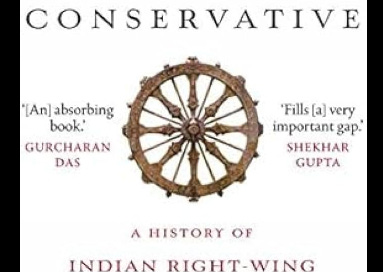Letter from an OBC
I would like to start by saying that I am neither a friend of the raitas or trads. I am a conservative and in my head, both of these groups do not capture the essence of the Indian Right or whatever you would like to call this political grouping. I am no friend of the raitas because for them there is no distinction between liberalism and Hinduism(Sanatan Dharma) and nor of the trads who believe that my existence is a evil and will lead to beastiality as my parents are from different jati’s. I am more of an enemy of trads, while I don’t consider them my enemy they have all the right to consider me as theirs.
I got into politics after reading the communist manifesto and became a communist. How I became a conservative, the short answer is I matured. Long answer is I started understanding the manifesto and what it implied and learnt of its outcomes. So, I became a raita or a liberal. But I was always insecure about our intellectual merit as our arguments seemed to be whataboutery at any given time. So, I started going on Youtube and Spotify. I found out about Carvaka podcast, Sangam talks, Upword and many other channels who are now a staple for me to learn about the world, ideologies, history, economics and sociology to some extent. I found like minded people on quora and made many friends there but still I myself felt that I was weak intellectually, so I started reading books. But there too I felt we were weak as I did not see many books on Indian Right wing thought or conservatism. Then, I got to know of these two books,
After reading these two books, I learnt two things, the Indian Right is not built upon hate but upon love for India, its civilization and Dharma. Through the 1st book, I got to learn about how to put out a case for Indian conservatism and from the second one the personalities I should read to make the case stronger. The two authors of the book I look upto till this day. One of the best days of my life was when Swapan Dasgupta ji followed me on twitter. The personalities in the book I got to know of where R.G Bhandarkar, Dharampal, Sita Ram Goel, Ram Swarup, Ananda Coomaraswamy, Shyamya Prasad Mookerjee, Jadunath Sarkar, R.C Majumdar, Lokamanya Tilak, Arun Shourie, Girilal Jain, SwatantryaVeer Savarkar, Nyayamurti Ranade, Br Shenoy and Rajaji. I found that they may not be completely conservative many of their views can be used to make a case for Indian conservatism. But to me it did not matter as at that time, I still was a raita. But now, I had the information, but what do I do with it, how do I make an argument with it, how to showcase that argument. That was taught to me by Kushal Mehra, Abhijit Iyer Mitra, Ashish Dhar, J Sai Deepak, Harsh Madhusudan Gupta, Vikram Sampath, Arihant Pawariya, Hindol Sengupta, Sanjeev Sanyal, Rajiv Malhotra, Meenakshi Jain, Ami Ganatra, Madhu Kishwar, Akshay Alladi, Aabhas Maldhayir, Raghava Krishna, Pankaj Saxena and Rohit Pathania. The RSS was and will always be a marker on the way, but the RSS is a given on any person’s journey who identifies as a part of the political right.
Now, the reason the title of this letter is such is because while I in my head am a Hindu, my traditions of the household are of a particular caste and sampradaya, here I always felt that the left had a stronghold on the subject and our side, too defanged to respond to it in an appropriate manner. It was almost as if our side got paralysed when the subject came up. We would fight them on economics, history, culture, traditions, religion and everything, but the moment the subject of caste came up, we went on the defense. At this time, I was also made aware of my caste and the impure birth I had due to the ICM of my parents. The trads made me realize that, but at the same time they were able to counter the left on caste quite masterfully, so while I held a dislike of them, I could learn from them. After going into much reading, I realized that the narrative on caste prevalent even on the Right made no sense because it went against the most important thing: Historical and Sociological reality. Here, I started to drift towards conservatism in a more serious fashion and started reading some of the intellectuals written above more seriously and in depth. Now, my views in the present are shaped by it.
The reason I write this is because I finally know why so many accepted the view of the Left in the Right: self hate. Self Hate based on an identity they did not choose, the very same people who taught me that my caste identity did not matter on me being a Hindu were now telling me that they had an ancestral sin which they carried on their head and had to pay for, which makes no sense to me. Why should anybody hate themselves for the sin of their forefathers? The argument given by them is that their ancestors oppressed fellow Hindus and so they need to atone their mistake. One, this is not required and an individual does not have to take ownership of the mistakes of his ancestors and two, it sounds eerily similar to the arguments by the woke left. I never thought about the caste of the people I was listening to or reading, I did both of those things because I learnt from the Ladies and Gentlemen. For me, they all are my gurus in every sense of the word as I know how to deal with every situation through their example. This was the emotional side of the argument of why I think a certain community should not hate itself for so called sins of their forefathers. Now comes the logical and historical part.
Here are some of my musings on caste that I have come to observe in my readings and observations and why we need serious scholarship devoid of ideology to understand this:
(I am only writing things which are not discussed in general public)
The caste system seems to work like a stack of chairs except each chair is a caste and the individual belonging to the caste is a small molecule that makes the chair. Now a chair therefore a caste does have mobility but a individual does not. Therefore, the Jati-Varna Parampara did allow mobility but not of individual but of entire castes which is not discussed in public discourse.
The mobility was influenced by many factors but usually political and economic and we see this during the takeover by the Peshwa of the Maratha Confedaracy. The specific sub-caste of brahmins they belonged to now had more prominence than before. There is a reason why Deshasta and Chitpawan Brahmins do not like each other.
Savarkar’s idea of roti-bandi was a shackle was not his own but of his ideological guru “Lokmanya Tilak” who also wrote about it in his writings, was asked his views on how to stop this practice and there he said that before we an get Hindus of different jatis to eat together we need to make sure that Brahmins of different sub jatis eat together because even they had a hierarchy in them. I also know this from personal experience because I am half one.
Caste discrimination did happen and was done but not by Brahmins on the so called lower jatis but by the lower jatis on those who they considered lower than them. for eg in his letters to Babasaheb Ambedkar Veer Savarkar wrote to him to stop the Mahars from mistreating the Chamars and Mangs of Maharashtra as they did not let them use their wells.
Another reason that discrimination was not possible was because we were and still in rural areas are a highly segregated society on caste and religious lines.
In modern times we see that it is the OBC’s which discriminate against the SC/ST more than the so called UC’s. In the Tamil Nadu the the so called ‘reformist’ Dravidian movement just changed the caste dynamics not tear it apart like it was going to in its manifesto. Now the so called OBC’s are harassing the UC and SC/ST. This is joint in by the earlier point of intra caste discrimination.
In a recent pew study it show us that it is the UC who are more open minded or reformist on caste rather than the so called lower caste at the percentage level.
This point is a opinion but from what I have observed is that people who still believe that hereditary caste is good are usually do so because of economic reasons, traditions and for a belief in superiority which comes due to lack of self belief in their own individual abilities like how racists in west are usually the worst representatives of their race so are casteists in India.
Other points which make me reject this narrative is because it is sold upon the narrative of a oppressor and a oppressed when historical literature points out that everybody was oppressing anybody they got a chance to oppress.
Also let us believe that the Brahmins were the oppressors all of the time every-time. You want to tell me a member of the OBC community that 5% of the Hindu population or let us say the UC which are roughly 25–30% of population oppressed 70–75 % of it and they just took it. I mean in a very weird way this reeks of caste supremacism.
Also the point of them being collaborators, and the LC not being collaborators, with all due respect, that argument is stupid because of two reasons, the LC did not collaborate because they did not get a chance to an second, it ignores human nature where an individual prioritizes themselves over the community. It has nothing to do with caste and everything to do with humanity and its rottenness.
On the point of education, I will say Dharampal Ji and his book The Living Tree, that is my argument.
I conclude this letter from an OBC Hindu conservative to his brethren on the Indian Right or whatever you call it.
Source:






